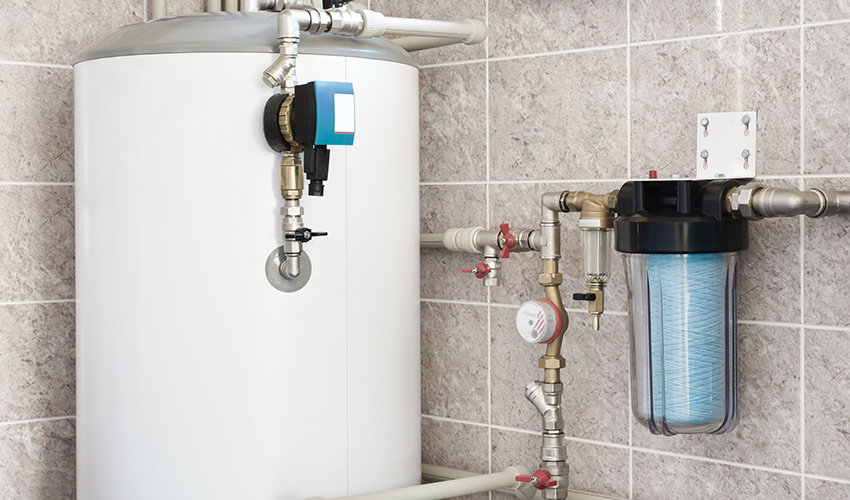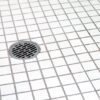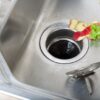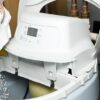Understanding Different Types of Water Heaters

From showers and baths to dishes and laundry, hot water is a huge part of our daily lives. Do you know what kind of water heater is in your home? Maybe you didn’t even know there are multiple styles. If not, don’t worry – Robillard has you covered. We put together this guide to understanding different types of water heaters commonly used in our region. Read on to learn more.
Conventional Storage Water Heaters
This is the most common type of water heater. As the name implies, it heats and stores hot water inside an insulated tank, ready to be used throughout the home whenever you need it. Many homes use natural gas to fuel this style, though they can also be powered by electricity (which we look at next).
Pros and Cons
Conventional water heaters tend to be the most affordable, both in outright price and installation time/cost. They work around the clock to always have hot water available when you need it, though the actual amount at any given time will depend upon the size of the tank itself (typically anywhere from 30 to 80 gallons).
However, this means you are paying to heat water all the time, whether you’re using it or not. Conventional water heaters also require regular maintenance, such as routine valve testing and flushing the unit twice annually to prevent mineral/sediment build-up.
Electric Storage Water Heaters
This style operates in
virtually the same way as standard or conventional storage water heaters, with
the key distinction that they use electricity rather than gas.
Pros and Cons
Electric water heaters have low upfront costs and offer more energy efficiency compared to gas models, which experience energy loss during the venting process. Electricity is also more widely available, as not every house is connected to a natural gas line, which is a costly upgrade to make should you choose to do it.
There are a few things to consider when it comes to electric water heaters. For one, they have a relatively slow heating time compared to the rapid gas combustion heating process. Relying on electric power, your water heater will also be susceptible to power outages. Additionally, electricity tends to cost more than natural gas, which is one of the cheapest energy sources.
Tankless Water Heaters (AKA “On-Demand”)
As you probably guessed, tankless water heaters have no tank for storing hot water. Instead, they feature coils that rapidly heat water on demand.
Pros and Cons
Only heating water as it’s needed, tankless water heaters are much more energy efficient than conventional ones. However, upfront costs tend to be higher. They come in a wide range of sizes, and you’ll want to consult a plumbing professional to ensure you get the right size for your household demands – you don’t want to be left with lukewarm or cold water because your system can’t keep up!
As there’s no “one size (and style) fits all” answer, understanding different types of water heaters is important for every homeowner. Be mindful of your budget and remember to consider the size of your household and hot water demands, primary energy source, and regional climate. Consult a professional to ensure you make the best choice possible. Robillard provides water heater installation and maintenance. We’re your local experts for all things plumbing. Contact us today to learn more.



